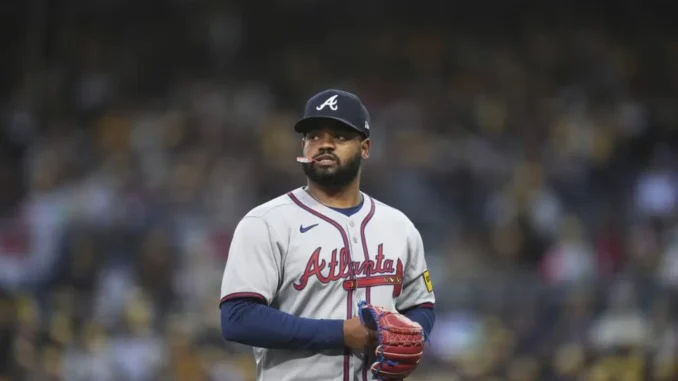
The Braves are facing a tough start to the season, and while Jurickson Profar’s 80-game suspension is a major setback, Reynaldo López’s shoulder inflammation could be an even bigger issue. However, their real trouble may have started months ago—back in November, when they pulled out of a deal for free-agent right-hander Jeff Hoffman due to concerns over his shoulder.
Hoffman was initially intended to be the key addition to their offseason plans, transitioning from a reliever to a starter, much like López did last year. Instead, the Braves pivoted to signing Profar to a three-year, $42 million contract. Baltimore also backed out of a deal with Hoffman in January, leading him to sign with the Blue Jays for three years and $33 million. Hoffman later hinted that both Atlanta and Baltimore made lower offers after their initial medical concerns, leaving the Braves without another major free-agent pitching addition. Just five games into the season, their pitching depth—both in the rotation and bullpen—is already showing cracks.
Despite the rocky start and a winless record, there is still hope. The Braves expect reinforcements soon, with Spencer Strider and Sean Murphy likely returning by late April and Ronald Acuña Jr. back by early May. Profar’s suspension also frees up nearly $5.8 million in payroll, leaving the team roughly $14 million under the luxury-tax threshold. President of Baseball Operations Alex Anthopoulos, known for his aggressive approach at the trade deadline, now has the flexibility to pursue high-impact players, including Miami’s Sandy Alcántara, if the Marlins make him available.
Still, Hoffman’s absence lingers. The Braves had reportedly aimed to sign him to a five-year deal worth $45-48 million, envisioning him as a high-upside starter who could transition back to the bullpen later. When that deal collapsed, they bypassed traditional starters like Charlie Morton and José Quintana, prioritizing flexibility. Instead, they put faith in young arms like Grant Holmes, AJ Smith-Shawver, and Ian Anderson—before ultimately trading Anderson to the Angels for reliever José Suarez.
Holmes, who struggled in his season debut against the undefeated Dodgers, was a crucial part of the Braves’ depth plan, but he’s out of minor-league options, meaning he can’t be sent down without risk of being claimed off waivers. The decision to open with him in relief before stretching him into a starter could strain the bullpen, which is already vulnerable.
As the Braves navigate these early challenges, the question remains: Will their offseason decisions come back to haunt them, or can they course-correct before it’s too late?
Leave a Reply